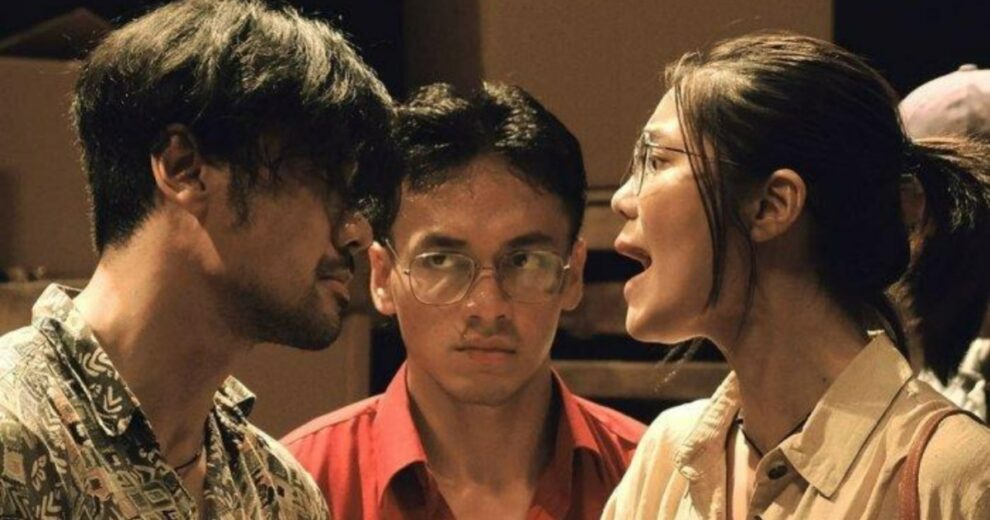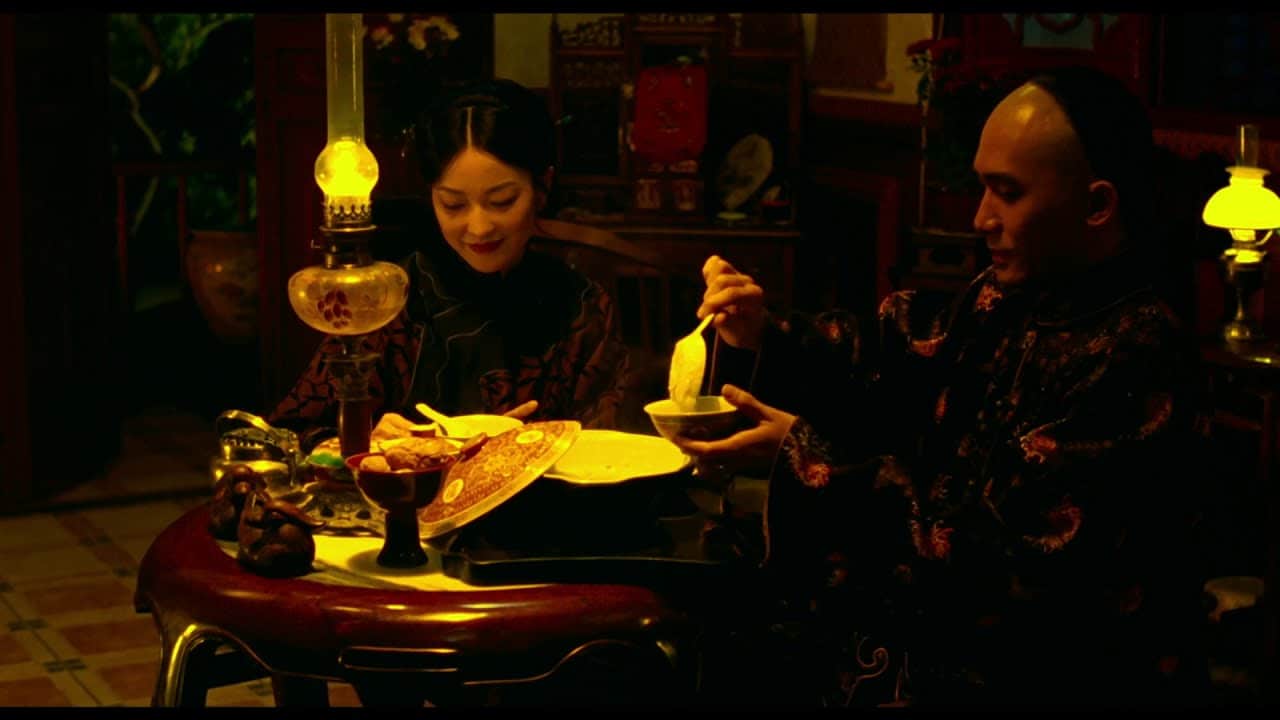It seems that in their constant search for content, which recently has expanded to Central and South-East Asia, streaming services will occasionally pick films that, normally, would not find a place in their particular programs. Granted, “Aum!” (nothing to do with the Japanese cult btw) has Chicco Jerikho as one of its protagonists, gives an intense “One Cut of the Dead” vibe, and won a couple of awards in the 2021 Jogja-Netpac Asian Film Festival, but is still a rather unusual choice.
Click on the image below to follow our Tribute to Netflix

The movie begins in the most intense fashion, with Satriya, a young man, being chased in an apartment building. His efforts, however, are futile, and soon finds himself arrested by Adam, a military officer, who is soon proved to be his brother. Despite the fact that Satriya is a member of an anarchic group that seeks reform, his brother's plan is actually to save his life, thus beginning a journey that is to lead to their escape. Their differences, however, soon come to the fore, as Satriya wants to continue his comrades' efforts for reform, while Adam wants him to lay low in order to avoid arrest. It is around this point that the first notion that there is something unusual with the film comes to the fore, as we watch the two actors participating in a theater performance of sorts and another scene featuring a “tiger dance”.
The two eventually reach Satriya's group, but another chase by the police takes place, while in the next sequence, the military leadership of the country are giving a press conference, when they are asked about the disappearance of students a few days before. Around the middle of the film, though, it is revealed that what we saw before is actually a movie shot by director Panca about reform, with the narrative then switching to how the aforementioned scenes were shot, in the “One Cut” element we mentioned in the prologue.
Check also this interview
Both the disorientation that dominates the beginning of the movie, and the revelation of the main, meta concept here work quite well, creating both a surprise and an antithesis, that ends up being quite entertaining. This antithesis extends to the styles of the two parts, with the first one looking like a low-budget political thriller, and the second as a mockumentary about the shooting of a film. Through both parts, however, the focus on the critique of the political system in Indonesia, as much as the role the army plays, is quite intent, even if given in completely different style: serious in the first and funnier in the second.
Furthermore, the second part makes a number of comments regarding how filmmaking works behind the cameras, with the director being a true diva, whom his colleagues consider a genius though, at least when they are not complaining about his overall attitude. Between unrealistic demands, inappropriate behavior, fights, a cameraman who seems to want to shoot the director more than the actual film, Linda Salim, the producer, finds herself playing a role somewhere between the kindergarten teacher and the circus tamer. Her constant angst to retain some balance and actually conclude a film is a realistic comment about the chaos film production usually entails, particularly in low/no budget films, while it is also the main source of comedy in the movie, along with Panca's behavior.
As such, the three main protagonists, among the plethora of people appearing here, are the ones that carry the majority of it on their shoulders, and, thankfully, both their individual performances and their chemistry are top notch. Chicco Jerikho as the spoiled genius Panca is funnier than ever, Agnes Natasya Tjie as Linda plays the role of the “intermediary” quite convincingly, while Jefri Nicho as Satriya highlights his frustration with gusto.
Bambang ‘Ipoenk' K.M. shot a rather ambitious project for his feature debut, and it is easy to say that, in general, he did a very good job. The transitions between the parts are quite good, also due to the competent editing by Fajar Kurniawan Effendi, while at 85 minutes, the movie definitely does not overextend its welcome, for the most part at least. DP Ujel Bausad's also does some interesting things in the visuals, particularly in the chasing scenes, which include shots both with steady and handheld cameras, while the way the cameraman is shooting is actually part of the comedy of the movie, in a rather meta approach.
At the same time though, the final twist seems to go a bit too far, a couple of scenes, particularly the ones involving (bad) singing seem unnecessary, and in the end, one could say that there are too many different elements here for a movie of this duration.
Despite these issues, however, “Aum!” is a very intriguing and entertaining film, and as a first step towards further experimentation from Bambang (and Netflix) definitely deserves a watch.















